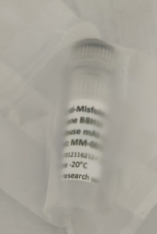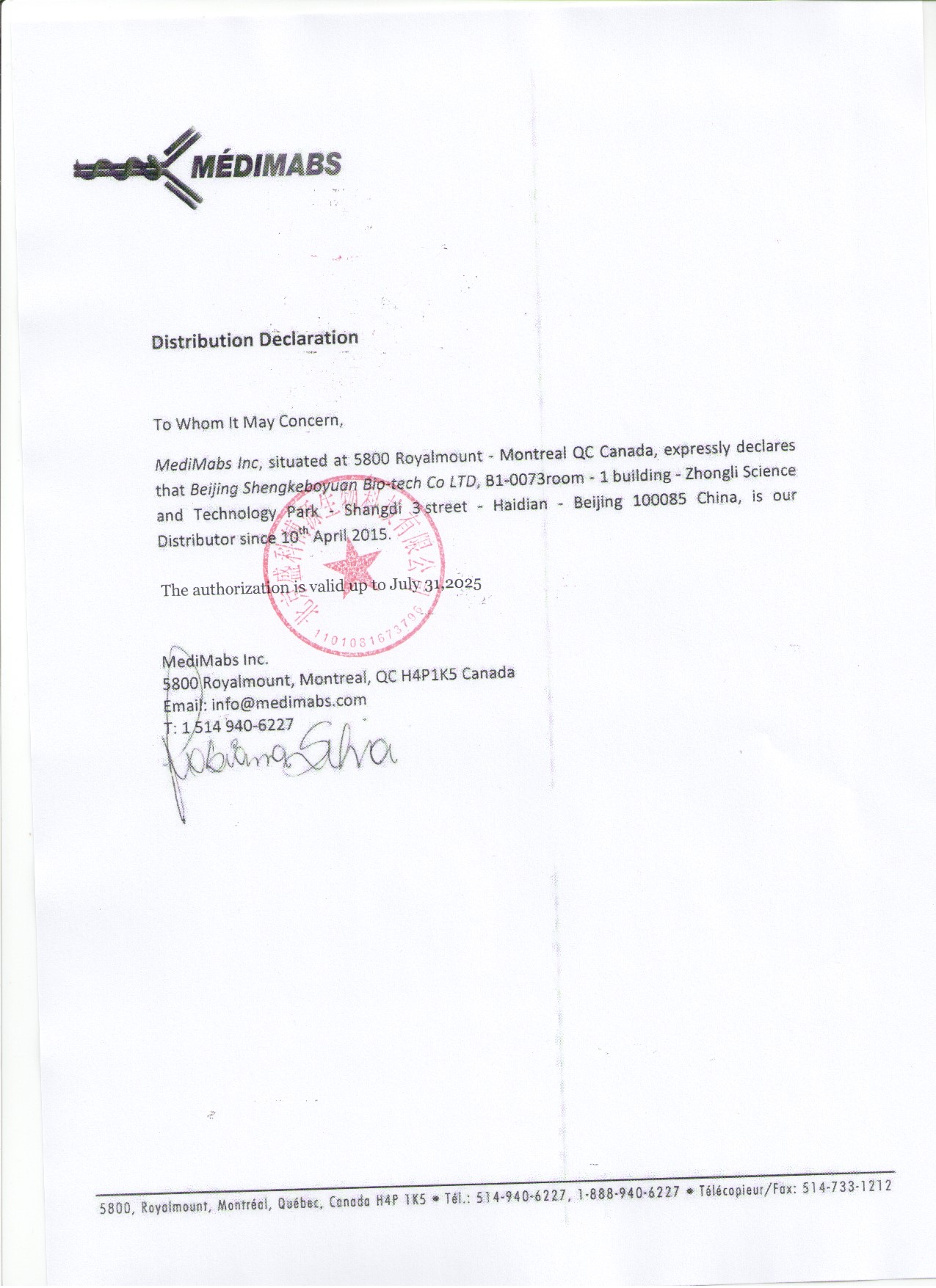 首页>
生物试剂
首页>
生物试剂
商家描述
商家资质信息
产品评价(0)
Target
VEGF
Target background
Vascular endothelial growth factor (VEGF) is a dimeric glycoprotein that stimulates vasculogenesis and angiogenesis. VEGF belongs to a family of closely related growth factors that share a conserved pattern of eight cysteine residues and bind to common VEGF receptors. The VEGF family members bind in an overlapping manner to three receptor tyrosine kinases, VEGFR1, VEGFR2 and VEGFR3. Specifically, VEGF mediates angiogenic response by the activation of VEGFR2. VEGF is produced at high levels in endothelial cells but its expression can be found in other cell types, including fibroblasts, inflammatory cells, and many tumor cells, often in response to increasing tumor hypoxia via the HIF-1a pathway. Overexpression of VEGF can contribute to diseases such as cancer and vascular disease in the retina; also, VEGF is a cause of susceptibility to microvascular complications of diabetes type 1 such as diabetic retinopathy, diabetic nephropathy and diabetic neuropathy.
Immunogen
Recombinant human VEGF (VEGFA)
Specificity
The antibody recognizes the partially reduced homodimmers and multimers that VEGF spontaneously forms. In reduced samples, the antibody recognizes the reduced monomer. The IgY anti-VEGF antibody recognizes VEGF121, VEGF165, VEGF189, and VEGFA(27 kDa).
Clone ID
---
Preservative
Ampicillin and streptomycin, 0.05% sodium aside.
Format
Total IgY purified, stored in PBS pH 7.4 and lyophilized.
Recommend starting dilution
If reconstituted with deionized water in 30 µl: WB 1:1000 – 1:8000; IF 1:500 - 1:2000 (in cells fixed with paraformaldehyde). Optimal dilution has to be determined by the user.
Limitations
Research Use Only
Storage
Lyophilized antibodies can be kept at 4ºC for up to 3 months and should be kept at -20ºC for long-term storage (2 years). To avoid freeze-thaw cycles, reconstituted antibodies should be aliquoted before freezing for long-term (1 year) storage (-80ºC) or kept at 4ºC for short-term usage (2 months). For maximum recovery of product, centrifuge the original vial prior to removing the cap. Further dilutions can be made with the assay buffer. After the maximum long-term storage period (2 years lyophilized or 1 year reconstituted) antibodies should be tested in your assay with a standard sample to verify if you have noticed any decrease in their efficacy. To limit antibody loss or degradation, BSA (final concentration 1%) and sodium azide (final concentration 0.02%) can be added to the suggested first dilution. It is important to first verify if those preservatives are compatible with your assay.
 会员登录
会员登录.getTime()%>)
 购物车()
购物车()

 成功收藏产品
成功收藏产品
